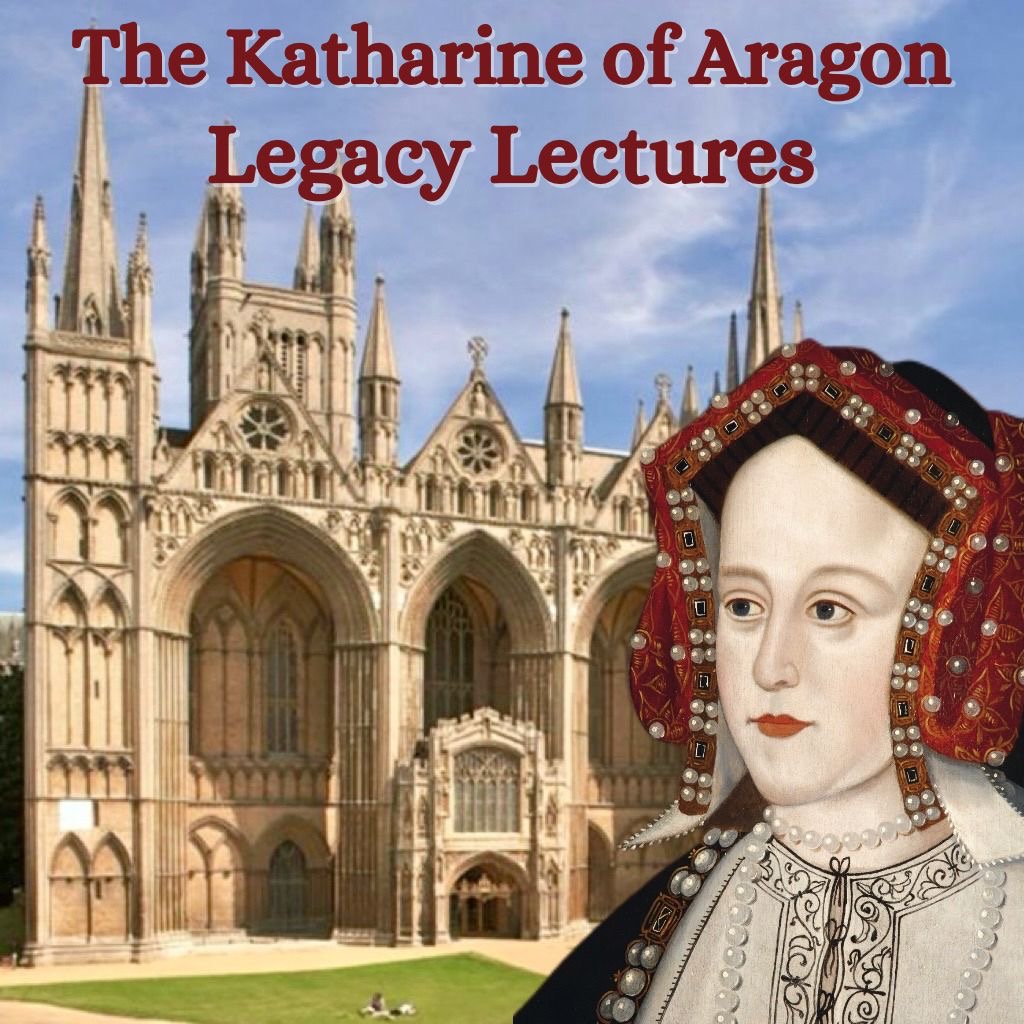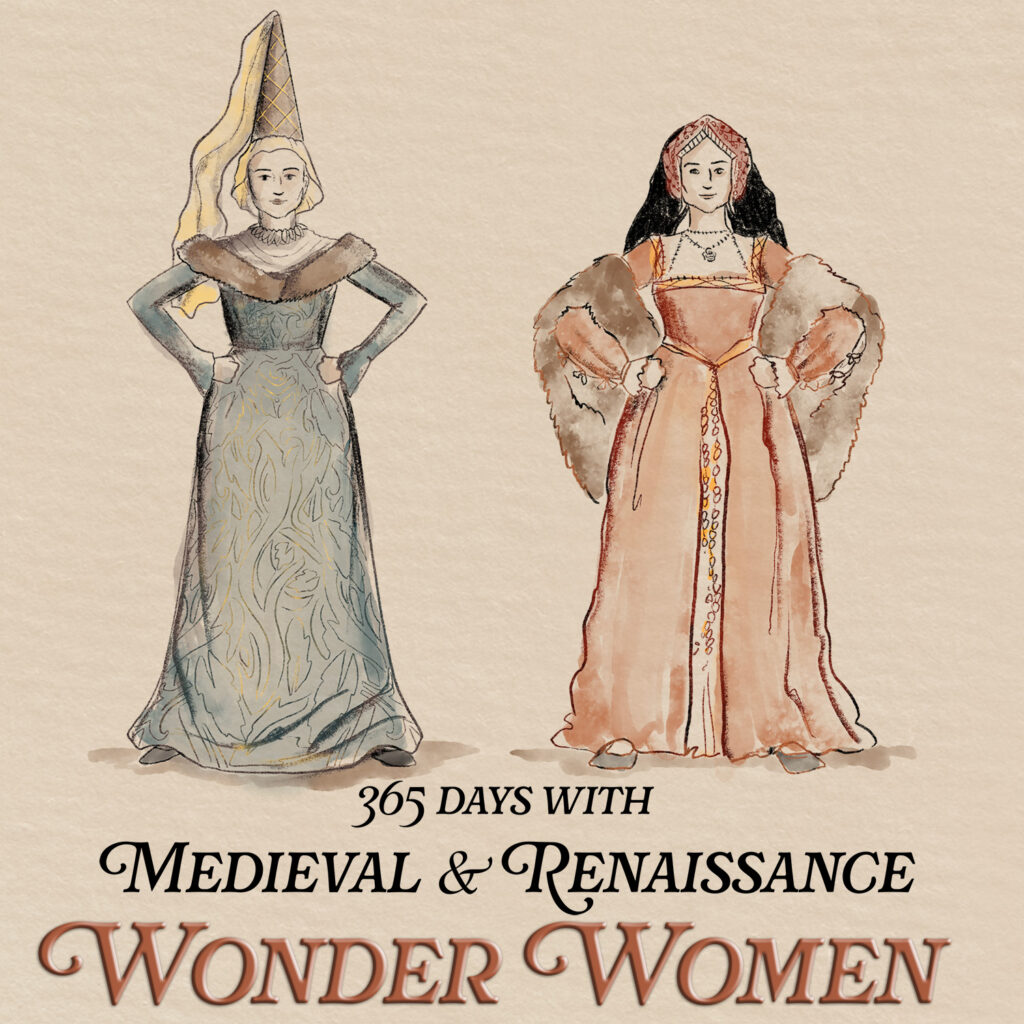Today’s post is a guest article by author and historian, Linda Porter. It gives me great pleasure to welcome Linda back to On the Tudor Trail. Read my exclusive interview with Linda here.
THE ENDURING APPEAL OF TUDOR WOMEN
BY LINDA PORTER, AUTHOR OF KATHERINE THE QUEEN, THE REMARKABLE LIFE OF KATHERINE PARR, THE LAST WIFE OF HENRY VIII
Despite the difficulties facing biography as a genre (which the publishing world seems to think are rapidly worsening), there remains a great deal of interest in the leading women of Tudor England. Why should this be? In part, it is probably an outgrowth of gender studies, albeit in a more accessible form than some of the obscure and highly academic volumes that came out in the 1990s. As a writer and historian, I remain slightly sceptical of gender studies, though I think their period as a growth industry may be past its peak. I do not share David Starkey’s view that the concentration on well-known figures by female historians has actually skewed the study of 16th century history itself – in many cases it has provided new and fresh perspectives – but I did find some of the ‘learned’ articles on Katherine Parr’s writings that I had to plough through while researching my book were simply unreadable. More to the point, they failed to recognize that, influential as Katherine’s published output may have been in its day, it has very little resonance for anyone who has a broader interest in the life of Henry VIII’s last wife. Trying to do the intellectual side of Katherine’s life justice without losing my readers completely was quite a challenge and probably explains why there has not been a popular but serious life of her before.
So, are we depicting Tudor women in an anachronistic way? I am disturbed when I see comments on websites that describe Anne Boleyn as ‘empowered’ and read reviews of the latest biography of Katherine of Aragon which claim that she had a 21st century mind. This is nonsense. We learn nothing about the past by applying such crass definitions to women who lived so long ago and utterly lacked the context of our own times. There is nothing empowered about having your head cut off and Katherine of Aragon has always seemed to me to embody the conservative forces of the 16th century rather than its new ideas, despite her undoubted courage. Pride, rather than feminism, spurred her on and her stubbornness was to cause immense damage to her daughter, Mary.
Our endless fascination with Henry VIII’s wives, his daughter Elizabeth and her unhappy cousin, Mary Queen of Scots, continues to sell books. As writers, we have fuelled this trend because we naturally suggest topics that we know publishers like. But perhaps the perceived decline of biography means that the heyday of the Tudor queens is passing. The lives of ordinary women in Tudor times are virtually unknown and until this imbalance is redressed, our knowledge of the period will remain confined to those at the top. We need to remember, even when dealing with the great ladies of the time, that they did not think as we do. Basic human emotions don’t change, but the world in which people live does, very dramatically. Perhaps we like the Tudor period so much because it is the transition from medieval to what we are pleased to call early modern times. But the Tudors were not just like us in fancy dress. And my next book, by the way, is not a biography but a narrative history of the rivalry between the Tudors and the Stewarts and how it shaped 16th century Britain. I love writing biography but I think we all need to embrace new ways of looking at the past, so long as we don’t descend too giddily into anachronism.

















Totally agree with that statement ‘the Tudors were not just like us in fancy dress.’ They were different, mentally, emotionally, motivated by different priorities. There is some common ground, of course, but nowhere near as much as portrayed in popular culture – TV series and films. Perhaps, though, that is why they remain so very intriguing.
Love the article. I hate when authors, historians and lay people try to make characters from history modern. Anne Boleyn, Katherine Parr and others lived in a different time and place. Superimposing modern attitudes or thinking less of a person because of his or her beliefs, is a great folly. All people are shaped by their surroundings and we must accept all Tudor woman for what they were: women trying to make the best out of their world!